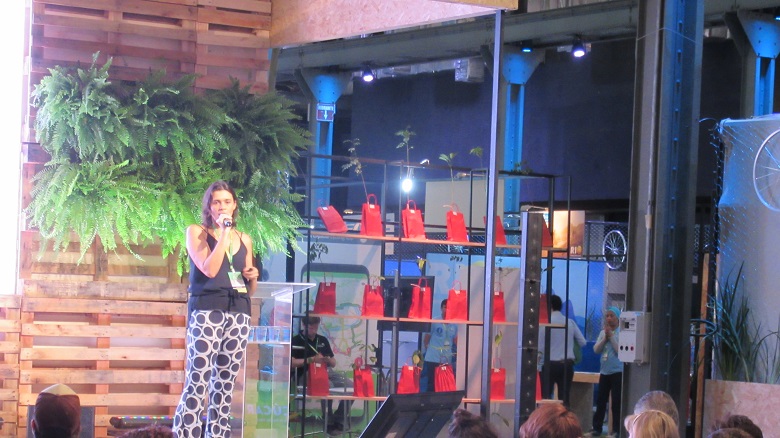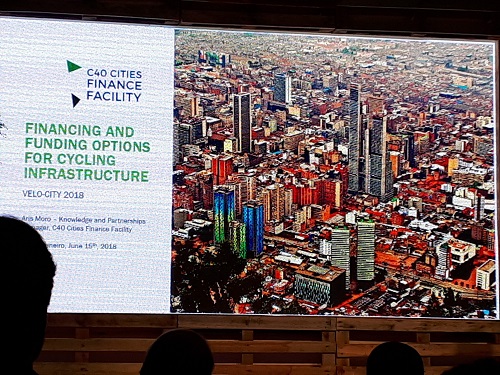
Velo-city day 4: Unlocking Big Funds
Simone Gallo is the Head of Institutional Relations of Itaú Unibanco and an activist for urban mobility. Simone is responsible for Itaú Unibanco's urban mobility platform, which promotes bicycles as a means of transportation in cities.
One of the key issues for investment in active mobility, according to Simone, is to establish a partnership with other private entities. It is about bringing together private companies to establish change and for that joint action is very much needed. Only then can we foster new businesses in the bicycle industry that have the potential to transport our Cities.
Aris Moro is the Knowledge and Partnerships Manager for the C40 Cities Finance Facility (CFF), a joint initiative of the C40 Cities Climate Leadership Group and GIZ. The CFF facilitates access to finance for climate change mitigation and resilience projects in urban areas, providing tailored technical assistance to develop cities' sustainability priorities into bankable investment proposals. In his presentation, Aris presented his report on establishing the enabling environment for the Quinto Centenario cycle-avenue in Bogotá: https://www.c40cff.org/knowledge-library/cycling-infrastructure-in-citie....

The good news, according to Aris, is that cycle infrastructure is relatively cheap. For example in Portlang the City’s entire bicycle network has been built for the cost of a single mile of motor highway. The bad news is that it is small scale and does not generate any revenue.
The main challenge for attracting investments for cycling infrastructure is the fact that it is not a financing challenge but a political challenge.
The final speaker in the “Unlocking big funds” sessions was Jan Rickmeyer from the Sustainable Mobility sector of GIZ, who he is responsible for sustainable transport policy counselling on local, regional and international levels.
In order to provide the necessary financing, some conditions have to be met at the end of the recipient of the financing: they need good partners, a reliable government structure and good project management skills.
But what about developing countries without reliable government structures? They often need this funding for cycling infrastructure even more compared to the countries that do have government structures in place. Even in those cases it is still possible to fund pilot projects, answered Aris Moro.
Topics:
Contact the author
Recent news!
Upcoming events
Contact Us
Avenue des Arts, 7-8
Postal address: Rue de la Charité, 22
1210 Brussels, Belgium









